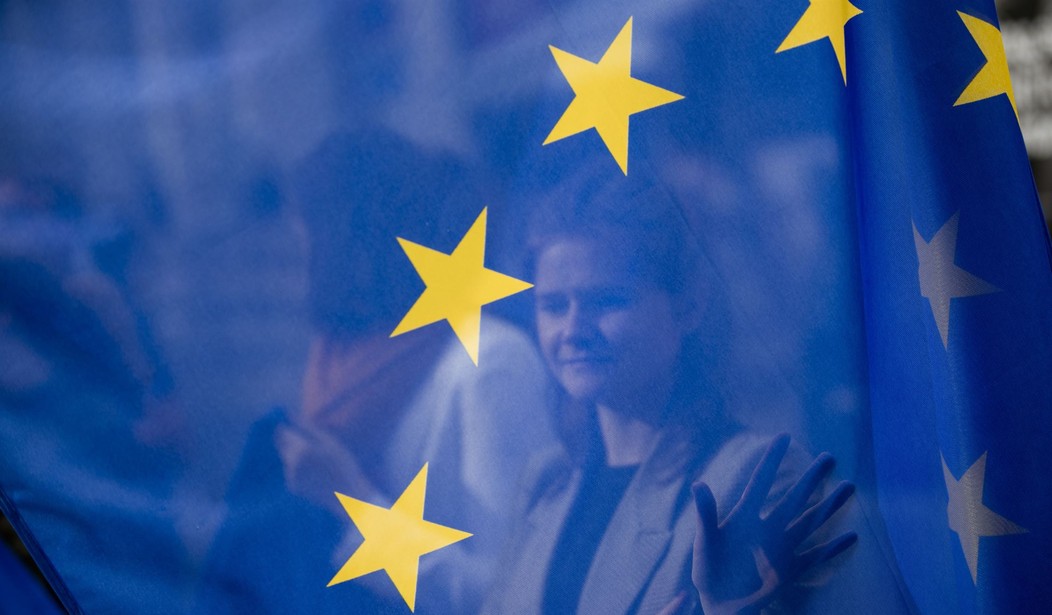In recent years, Europe has learned the hard way how vulnerable a region can become under a misguided energy policy. EU member states, Hungary included, once considered an open war on the continent unthinkable. But political idealism outpaced economic prudence, and Europe gradually allowed itself to grow dependent on Russian energy.
Now, as the war between Russia and Ukraine grinds into its third year, Europe finds itself paralyzed—its options limited, its influence diminished.
As a former member of the Hungarian Parliament who saw these consequences unfold firsthand, I would like to show the United States what it can learn from these missteps.
Since 2014, the European Union has had very ambitious climate goals, with an emphasis on renewables. At the same time, some member states have eliminated their nuclear capacities and declined to invest in modern energy production systems.
Even more serious is that while the EU overregulated its domestic energy industry, it didn’t pay ample attention to securing the supply.. Countries became dependent on Russian gas as it looked cheap and satisfied most of their energy needs.
It all backfired in 2022 when Russia invaded Ukraine. Energy prices soared, supply was uncertain, and Europe hurried to find new energy sources, even at a higher price for consumers. Dependence always has a higher price than you anticipate.
Hungary had developed a particularly close relationship with Russia in the field of energy. The government signed long-term contracts with Gazprom, while rejecting increased access to Western energy sources. Lawmakers in Budapest also seek to finance the expansion of the Paks nuclear power plant with Russian loans, further deepening the country's ties to Moscow.
Recommended
At the same time, the Hungarian government introduced a policy of keeping household energy prices artificially low. Although this was a popular tool, in the long run it undermined the financial stability of the energy sector, curbed investment, and increased state dependence.
When the price of Russian gas spiked, the system became unsustainable, and the government was forced to partially withdraw the cuts. Hungarian consumers became doubly trapped between Russian energy dependence and domestic economic constraints.
This regulatory overreach is also easy to spot at the EU level. The European Union is extending its strict regulations not only to its own Member States but also to foreign companies operating in the EU. The Corporate Sustainability Reporting Directive (CSRD) requires large companies, including US firms, to report in detail on their environmental impacts, social and governance policies, and how they intend to achieve their net-zero emissions targets for 2050.
This legislation applies not only to companies operating in the EU, but also to non-EU companies with an annual turnover in the EU of more than €150 million. Companies will have to report on their global operations and could face fines of up to 5% of their global turnover if they fail to comply.
This practice places a significant burden on US companies, including those in the energy, technology, and pharmaceutical sectors. Brussels’ actions not only strain transatlantic economic relations but also threaten the competitiveness of US companies.
The United States is now in a unique position. America has abundant energy resources such as natural gas, oil, renewables, and nuclear power, and to back it all up, it boasts a strong entrepreneurial culture primed to deliver innovative solutions.
US policymakers must avoid the trap that Europe has fallen into, which is to artificially constrain the energy sector with sustainability quotas and regulations, and instead let the market and technology determine the future of energy.
It is vital that the US maintains its energy independence and does not become geopolitically vulnerable, as has happened across so much of Europe. The lesson of Russian gas dependence is clear: the more you allow an outside power to influence your energy supply, the less you can defend your own economic and political sovereignty.
If you don’t fight for your best interests, no one else will.
As a former politician and an advocate of capitalism, I have always believed that the free market can offer the most effective solutions. I have seen how political interference distorts the energy sector and how economic rationale becomes a victim of power politics.
The United States has an opportunity to avoid these mistakes. Let American innovators, entrepreneurs, and investors shape the future of energy, not just more efficiently, but more sustainably than any central government could ever achieve.
The key to energy independence is not a dense web of political calculation, but following the lead of everyday people based on their choices in the market.
Zoltán Kész is a former Hungarian MP and government affairs manager at the Consumer Choice Center. You can follow him @KeszZoltan.
























Join the conversation as a VIP Member